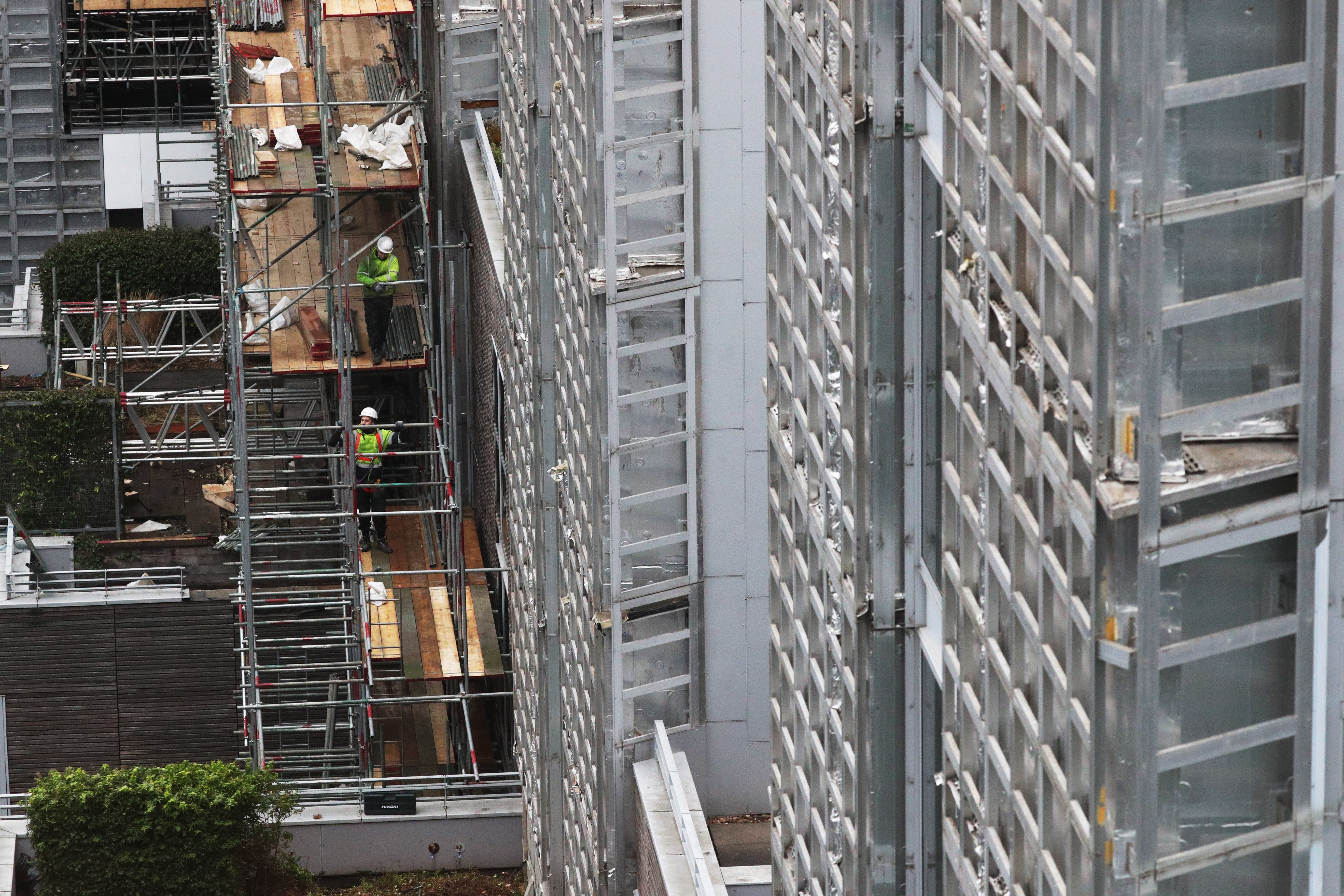Cladding works set to cost housebuilder Redrow £200m
Competitor MJ Gleeson also told shareholders on Wednesday that it has signed the Government’s building safety pledge.

Your support helps us to tell the story
From reproductive rights to climate change to Big Tech, The Independent is on the ground when the story is developing. Whether it's investigating the financials of Elon Musk's pro-Trump PAC or producing our latest documentary, 'The A Word', which shines a light on the American women fighting for reproductive rights, we know how important it is to parse out the facts from the messaging.
At such a critical moment in US history, we need reporters on the ground. Your donation allows us to keep sending journalists to speak to both sides of the story.
The Independent is trusted by Americans across the entire political spectrum. And unlike many other quality news outlets, we choose not to lock Americans out of our reporting and analysis with paywalls. We believe quality journalism should be available to everyone, paid for by those who can afford it.
Your support makes all the difference.Housebuilder Redrow has set aside a further £164 million after vowing to carry out more first safety works in the wake of the Grenfell Tragedy.
It will take the cost of the firm’s fire safety provisions to £200 million.
Redrow has become one of the latest firms to sign up to the Government’s new Building Safety Pledge, which commits developers to new guidelines for work on potentially unsafe cladding on buildings between 36ft (11m) and 59ft (18m) high.
Competitor MJ Gleeson also told shareholders on Wednesday that it has signed the pledge and is undertaking assessments on 15 buildings it helped to develop which are more than 36ft (11m) tall.
The company said it plans to complete the assessments by the end of June but did not highlight any cost impact.
It comes after fellow housebuilders Crest Nicholson and Taylor Wimpey also revealed increasing bills on Tuesday.
We believe the housebuilding industry should play its part in resolving the issue of legacy fire safety in high-rise buildings
Redrow said it was largely involved in the development of high-rise apartments between 2000 and 2010 and primarily outsourced the design and constriction of those sites to contractors.
It said in a statement: “As reported in our interim results, we believe the housebuilding industry should play its part in resolving the issue of legacy fire safety in high-rise buildings and that the financial burden should not be borne by leaseholders.
“We will work with leaseholders to remediate their buildings and, where possible, pursue recoveries from main contractors, warranty providers and other third parties.
“As these recoveries are not certain, they have not been recognised in estimating the provision.
“These remediation works are expected to take a number of years to complete.”
MJ Gleeson chief executive James Thompson said: “Leaseholders should not have to pay for any costs associated with life-critical fire safety issues and I support the Government’s efforts to engage the wider industry in remediating buildings made unsafe by life-critical fire safety issues.
“The housebuilding sector has responded positively to this initiative and is playing a proactive role and at significant cost.
“We will continue to work constructively with DLUHC (Department for Levelling Up, Housing and Communities) and the wider sector to ensure that this issue is resolved expeditiously.”